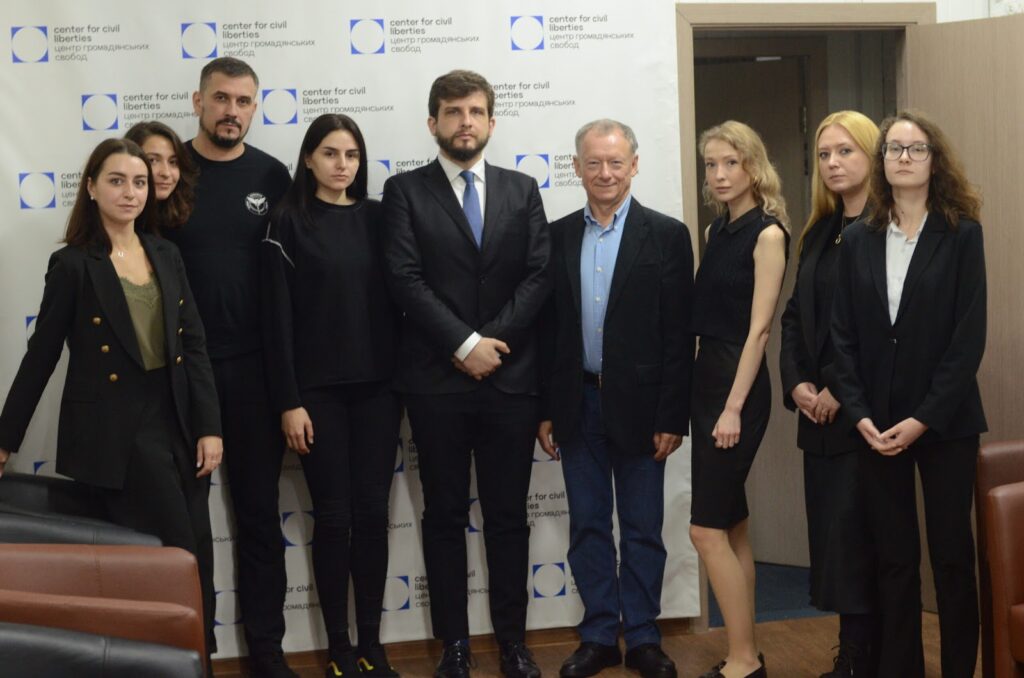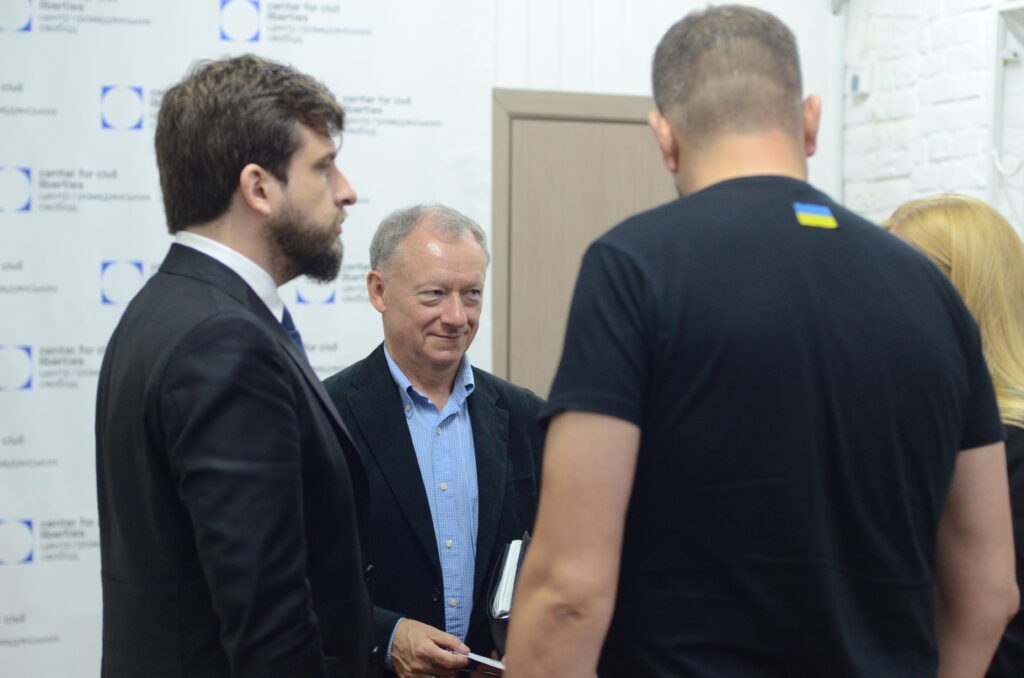On October 7, an Argentine parliamentarian in the MERCOSUR Parliament, Ivan Dubois, visited the Center for Civil Liberties. The meeting included human rights defenders, a representative from the Headquarters for the Treatment of Prisoners of War, families of civilians and prisoners of war who are illegally detained, and a Ukrainian who personally experienced Russian captivity.

The visit was organized by the NGOs “Transatlantic Dialogue Center” and “Resilient Ukraine.”
Mykhailo Savva, a member of the advisory board of the Center for Civil Liberties, shared that Russia currently holds more than 7,000 civilians illegally, according to the Center’s data. While it is impossible to estimate the exact number of prisoners of war, it is known that both civilians and military personnel are detained under deplorable conditions, suffering physical and psychological abuse. Mykhailo also presented the Center’s Civil Release Strategy, which contains proposals to exert pressure on Russia to release Ukrainian civilians illegally detained in connection with the armed conflict.


Anastasiia Savova and Roman Mykolenko shared the stories of their relatives currently detained by Russia. Anastasiia is the daughter of a defender from Mariupol who volunteered in 2015 and defended Azovstal in 2022. He was detained in Olenivka, Taganrog, and the Kursk-1 detention center, and later transferred to an unknown location following the operation in Kursk. Roman is the son of a 64-year-old civilian from Hostomel who was captured in March 2022; after a long search for information, he was finally informed that his father would not be released until the end of the war.
Mariiana Checheliuk shared her captivity experience. After the large-scale invasion, she sought refuge with her sister at the Azovstal plant. After the evacuation of civilians, they were separated in a Russian filtration camp. Mariiana was taken to the Donetsk detention center, then to a colony in Olenivka, and finally to a prison in Taganrog, where she suffered torture, including starvation and physical abuse, which she discussed in the meeting.
Ivan Dubois acknowledged the difficulty families face when discussing the loss of freedom and war crimes, and he thanked the Ukrainian organizations that document these offenses.
Solomiia Stasiv from the Clooney Foundation for Justice explained the concept of accountability through universal jurisdiction for crimes committed in Ukraine. Kateryna Miitieva from Truth Hounds shared cases about the detention of employees from the Zaporizhzhia nuclear power plant, while Kateryna Rashevska, a lawyer from the Regional Human Rights Center, spoke about the violations of children’s rights in the context of Russian aggression against Ukraine.